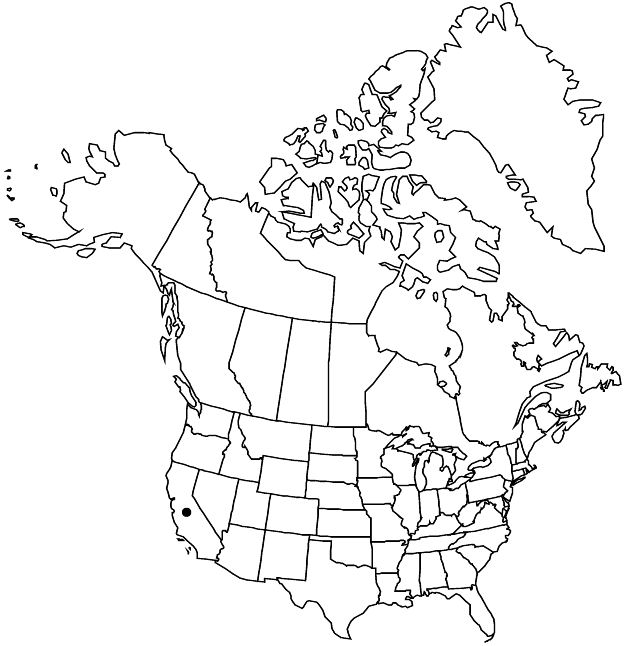Sidalcea reptans
Pittonia 3: 159. 1897.
Herbs, perennial, 0.2–0.5 m, not glaucous, with woody taproot and rootstocks, without well-developed rhizomes, but horizontal stems rhizomelike. Stems scattered, ascending-decumbent or creeping, freely rooting, solid, flowering-stems ascending to erect, proximal and midstem densely spreading-long-hirsute, bristles 2–3 mm, often on swollen pads, rarely subglabrous, base without stellate hairs, distally somewhat stellate-puberulent. Leaves basal and cauline; stipules on prostrate stems wide-lanceolate to ovate, 5–7 × 2–5 mm, elsewhere 3–6 × 1.3–2 mm; petiole 3–8 (–15) cm, longest on basal leaves, proximalmost 3 times blade length, reduced distally; blades: proximalmost suborbiculate, unlobed or very shallowly lobed, 2.5–5 × 2.5–5 cm, base wide-cordate, margins deeply crenate, apex rounded, surfaces usually bristly, hairs long, simple, to subglabrous, not stellate-hairy; distal rather similar to proximalmost or more deeply palmately 3–5 (–7) -lobed or toothed, lobes simple or 3-dentate. Inflorescences erect, open or some flowers overlapping, calyces not conspicuously overlapping except sometimes in bud, unbranched, usually 2–10-flowered, flowers 1+ cm apart, not much elongated, usually 1-sided, (5–) 10–20 cm; bracts linear or narrowly oblong-lanceolate, 2-fid, usually inrolled, proximal separated to base, 2–4 mm, usually equaling or slightly longer than pedicels, much shorter than calyx. Pedicels 2–5 mm; involucellar bractlets absent. Flowers bisexual; calyx (6.5–) 8–10 mm, somewhat accrescent, stellate-puberulent, marginal hairs longer, sometimes few glandular, multicellular, lobes sometimes dull purplish at tips; petals dark-pink to pale lavender-pink, usually pale-veined, 12–20 mm; staminal column 6–7 mm, minutely hirtellous; anthers white; stigmas (6–) 8–10. Schizocarps 6 mm diam.; mericarps (6–) 8–10, 3 mm, roughened, top, back, mucro densely stellate-puberulent, deeply reticulate-veined, pitted, mucro 1 mm. Seeds 1.5–2 mm. 2n = 20.
Phenology: Flowering Jun–Aug.
Habitat: Moist meadows, dry places in pine forests
Elevation: 1100–2500 m
Discussion
Sidalcea reptans is generally distinguished by its long-creeping, freely rooting stems with ascending ends that are long bristly-hairy proximally, its wide stipules on the proximal stems, its proximal leaves that are unlobed, crenate, long-bristly hairy, and on relatively long petioles, and its mericarps that are densely stellate-puberulent on their top and back and on the relatively long mucro. It occurs at relatively high elevations for Sidalcea and is found mainly in the central high Sierra Nevada.
Selected References
None.
Lower Taxa
"elongated" is not a number."longest" is not a number."elongated" is not a number.
